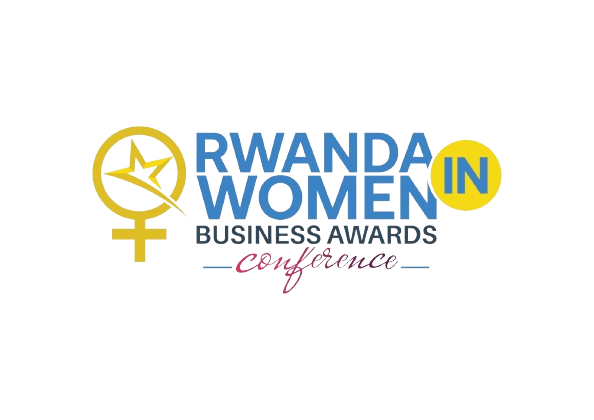A Major Tool for Rwanda’s Private Sector Growth and Economic Transformation
According Rwanda Economic Update (REU), titled “Accelerating Skills Development to Foster Private Sector Growth”, financing TVET to spur skills development for the different sectors of the economy is vital to fast tracking the growth of Rwanda’s private sector and achieving the country’s economic goals, as defined in Vision 2050. Generally, Rwanda has made notable improvement in education; however, more is yet to be done to guarantee that skill levels in its workforce match labor-market demands and the country’s development goals.
It has been realized that in key sectors such as agriculture and industry, it is unfortunate that most of the workers are employed but with and less skills, only having basic education. For instance 98% of the workforce in the agricultural sector has not completed primary school, limiting their opportunities for decent jobs and hindering the sector’s growth.
As the country aims to become a high-income nation, come 2050, f the need focus must be put on building a well-skilled workforce to drive a knowledge-based economy. However, the hard issue is that the education system’s outputs and labor market demands do not match. Students pursue degrees that do not align with job market needs.
To address this challenge, as the government invests more in skills development, it is essential to create a stronger partnership with the private sector especially when designing and developing of academic curricula and by offering internships, the private sector can help ensure that the skills taught in schools are aligned with the demands of the job market.
Bridging the skills gap for young women
The journey is still long, however, there is a remarkable progress and there are signs of greater promise. A strong foundation has being built for an impending workforce that can support a knowledge-based economy.
According to the World Economic Forum’s Global Gender Gap Report 2024, Rwanda stands out globally for its efforts in advancing gender equality and women’s empowerment (GEWE). This has been achieved via robust digital and science, technology, engineering and math (STEM) skills training, as well as high female enrolment in tertiary education. However, Rwanda is not slowing down following this success; it remains committed to fully closing gender skills gaps and aims to continue to increase gender parity across its workforce.
Rwanda’s approach to building a future-ready workforce by boosting female participation and reskilling and upskilling local workers could provide a blueprint for other governments, countries and regions.
The government of Rwanda has significantly improved female participation in sectors such as Agriculture, industry and technology through skills training and education. The nation wants to close the gender skills gap across more industries to create a future-ready workforce.
The government of Rwanda is working closely with the World Bank to strengthen skills development initiatives and, earlier this year, the World Bank approved $ 200 million for the Priority Skills for Growth and Youth Empowerment (PSGYE) Project. This project aims to provide 200,000 vulnerable youth, particularly young women who are not in education, employment, or training, with market-demanded skills. The project also aims to improve the quality of technical education. The PSGYE has so far trained 23,000 youths in market-driven skills. Upskilling youths is a sure fact that the private sector gains the ability to grow and be able to play an active role in reaching the goals set out in Rwanda’s Vision 2050.
Women in the future STEM
The government of Rwanda points out the importance of challenging stereotypes and building confidence to increase women and girls’ participation in STEM fields. Recent statistics show that women make up only 18% of STEM professionals, and more girls need to trust their potential and push beyond societal expectations.
Tech is all about problem solving, creativity, and learning. There is a place for everyone in it. Young women are encouraged to start small, dive into what excites them, and surround themselves with supportive people.
The government also emphasizes the critical role of engaging boys and men as allies in promoting gender equality in STEM. By educating themselves and others about gender equality and actively promoting inclusivity, men and boys can help build a stronger, more diverse and innovative STEM community where everyone can thrive.
Rwanda highlights the need to transform education systems to better support girls in ICT. Schools should move beyond theory and provide girls with real, hands-on experience through coding clubs, workshops, mentorship programs, and improving access to computers and the internet, especially in rural areas.
The Beijing Declaration and Platform for Action reminds that women and girls deserve equal rights and opportunities in education, leadership, and technology. Initiatives like the African Girls Can Code Initiative (AGCCI) are essential to advancing the goals of the Beijing Declaration by promoting women’s digital literacy, aligning with the Beijing+30 Action Agenda’s call to ensure that women and girls can fully reap the economic benefits of the digital revolution by bridging the digital gender gap and providing equal access to technology, financial services, markets, and networks.
Parity is crucial for all women and girls to experience equal opportunities to create solutions that change the world.
Rwanda’s dream is for all women and girls to have equal opportunities to learn, lead, and succeed; to be confident, independent, and free to pursue their ambitions, especially in technology and leadership.
The deal is that women and girls interested in pursuing a career in the ICT sector should keep learning, keep growing, and never give up. The world needs your ideas, your creativity, and your leadership.


